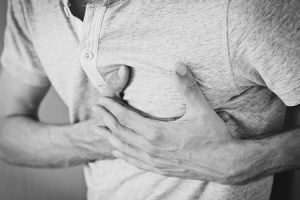When Should I worry About Chest Pain?
Chest pain can be alarming, since the symptoms of a heart attack are often varied and inconsistent from person to person. When should you go to the hospital for chest pain? If there is any doubt about the cause of the pain, it’s always best to err on the side of safety and visit the ER or call your doctor.
What is Thrombosis?
A thrombosis definition is simple enough, but there are many conditions related to the diagnosis. Thrombosis is, quite simply, the thickening of the blood within the vessels- commonly known as a blood clot. A clot can slow the flow of blood to a specific area, leading to pain, swelling, and tissue death. It can cause severe damage within the body, even leading to a heart attack. If you suspect you have a blood clot, seek a doctor’s attention immediately.
What is Thrombosis Disease?
Many conditions can cause thrombosis, disease of the vascular system, heart, and other systems can all contribute to  excessive clotting. A lack of movement or poor circulation can also lead to thrombosis. When the blood coagulates inside of a vein, the resulting clot restricts or stops blood flow, leading to further damage and sometimes aggravating already-existing conditions. Trauma, injury, disease, illness, lack of movement and circulatory issues can all contribute to thrombosis.
excessive clotting. A lack of movement or poor circulation can also lead to thrombosis. When the blood coagulates inside of a vein, the resulting clot restricts or stops blood flow, leading to further damage and sometimes aggravating already-existing conditions. Trauma, injury, disease, illness, lack of movement and circulatory issues can all contribute to thrombosis.
Deep Vein Thrombosis
Deep vein thrombosis is a clot that has become lodged in one of the deep veins in the body, usually the legs. The result can be redness, pain, swelling, weakness, nausea, and the clot can break loose and travel to the heart, causing chest pain. If a pain is sharp, does not improve with exercise or movement, does not respond to antacids, or lasts more than a few minutes, you should seek immediate medical attention.
Coronary Thrombosis
Perhaps the most dangerous instances of thrombosis is when a clot lodges in or near the heart, especially in the aorta, which supplies blood to the heart. If you experience sudden, radiating pain, even if the discomfort is only in your arm or upper chest, and it does not improve with movement or exercise, seek medical attention. While not all chest pain is related to thrombosis or heart attack, it’s better to visit the ER to be checked than to risk damage to your heart.

